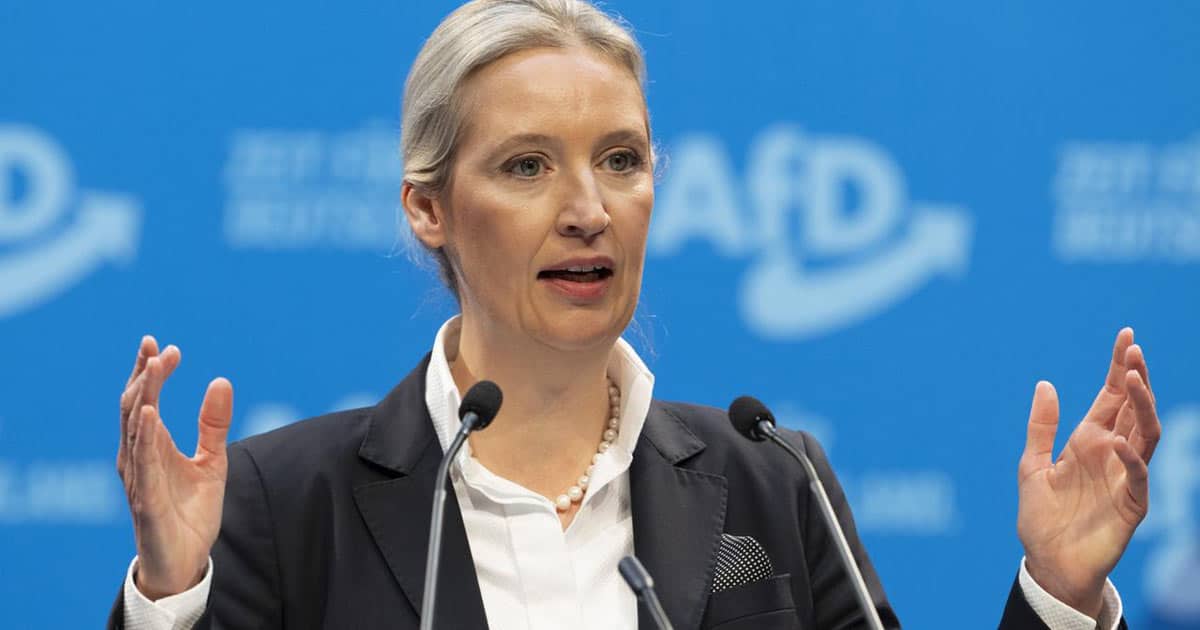Germany’s domestic intelligence agency has taken a significant step by classifying the Alternative for Germany (AfD) party as “extremist.”
This troubling decision marks a controversial turn in German politics and has garnered commentary both within the nation and internationally.
Fox News reports that the classification grants the intelligence agency, known as the BfV, increased authority to monitor the AfD, including more intensive surveillance and interception of communications.
The BfV announced its decision on Friday, citing concerns over the AfD’s ethnically driven ideology.
The agency argues that AfD’s ideology devalues parts of the German populace, alongside the party’s anti-migrant and anti-Muslim rhetoric.
This classification follows an extensive 1,100-page assessment and a court ruling where the AfD lost a battle to overturn a prior attempt by the BfV to classify it as extremist.
The political context in Germany requires any political party to be officially labeled as “extremist” to legally permit its surveillance, a policy rooted in the country’s historical experience grappling with totalitarianism.
The AfD now joins a list of organizations under this classification, which also includes the neo-Nazi party NDP, the Islamic State group, and the Marxist-Leninist party.
It comes after the AfD made significant electoral gains earlier this year.
The party finished second in Germany’s February elections with 20.8% of the vote.
This was a record for the party, cementing its position with a substantial number of parliamentary seats.
The elections were ultimately won by the Christian Democratic Union (CDU), led by Friedrich Merz, which garnered 28.6% of the votes and formed a coalition administration with the Social Democrats (SPD).
The Social Democrats and the CDU have both determinedly ruled out forming any coalition with the AfD.
The February elections were notably challenging for the SPD, led by outgoing Chancellor Olaf Scholz, resulting in its poorest performance since WWII, achieving only 16.4% of the vote.
The BfV’s decision has sparked a range of responses.
A representative from the BfV emphasized the central issue for their assessment being the ethnically defined notions within the AfD, which they assert undermine the dignity of Germany’s diverse populace.
Conversely, the AfD has condemned the decision as a “blow against democracy,” with the party’s leaders pledging to pursue further legal options to counter what they see as defamatory measures that threaten democratic norms.
Internationally, the decision has drawn critical responses.
U.S. Senator Marco Rubio lambasted the new surveillance powers afforded to the BfV, describing the designation as an ill-disguised authoritarian measure rather than a democratic action.
Rubio further argued that the AfD’s stance on immigration contrasts starkly with the establishment’s policies he believes are “extreme.”
Social media magnate Elon Musk also shared his concerns, expressing that moves against the AfD, a party he describes as centrist, are more aligned with eroding democratic principles.
Similarly, American senator JD Vance has voiced apprehension about what he sees as an erosion of free speech in Europe, having previously met with AfD leader Alice Weidel before the elections.
Amidst the controversy, the future of the AfD remains uncertain but is vital for German politics.
The party is continuing its legal efforts and maintains a robust voter base, evident from its recent electoral success.
The AfD’s leadership has reiterated its intention to challenge the BfV’s classification, reinforcing its commitment to counter what it terms a politically driven attack.
As this political and legal saga unfolds, the discussion surrounding Germany’s intelligence-gathering laws and their impact on democratic opposition parties continues to evolve.
The situation underscores the complex balance between national security interests and maintaining the democratic freedoms within Germany’s political system.
The decision to label the AfD as “extremist” reflects broader global debates about security, democratic freedom, and populist movements, ensuring this story will remain a point of interest both in Germany and internationally as ensuing developments emerge.
READ MORE – Germany Confirms mRNA ‘Vaccines’ Killed More People Than Covid

Our comment section is restricted to members of the Slay News community only.
To join, create a free account HERE.
If you are already a member, log in HERE.